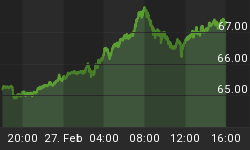So called 'living wills' and Libor lawsuits
Why read: Because, while you almost certainly have read and heard inthe past two days of:
-
the so-called 'big bank' 'living wills' that were filed with U.S. Regulators this week; and,
-
on-going reporting involving Barclays PLC, some of its executives, and the approximate U.S.$450 million settlement reported as having been agreed to by Barclays PLC last week related to Libor transactions,
those reports and articles referenced herein may not have quite the same initial slants on those two things as does this commentary.
Referenced Articles: The six articles referenced below collectively report on:
-
the submissions made to U.S. Regulators by nine of the world's largest banks;
-
a basic understanding of Libor (the 'London interbank offered rate'); and,
-
a report that says there are class actions pending against bank defendants with respect to Libor related transactions.
If you have not already read them, you might want to take the time to do that as background to what is likely in the next weeks and months to be a barrage of mainstream and internet media coverage on both bank 'living wills' and Libor transactions.
Commentary: It is early days for both of these things. That said, here are initial 'first thought' comments.
Simply put, these bank submissions are documents prepared by each bank at the request of the Regulator that:
-
apparently support the proposition that each 'submitting' bank has an economically viable fall-back position; that
-
in the event it becomes insolvent all or some of its operations would be recovered or dismantled; in
-
such a way government bailouts would be unnecessary.
With respect to the 'living wills' submitted by the nine banks so far (apparently many more banks will be submitting like reports at the request of the Regulatorsover the next 18 months) - one has to wonder:
-
what assumptions underlie each of those reports with respect to financial and money market conditions at the time each bank became insolvent. Importantly, not having had an opportunity to read these reports, it may be that the assumptions made by each 'submitting' bank differ from one another;
-
how each bank took possible inter-bank contagion and market contagion into account when generating its 'living will'. Again, this may differ among the 'submitting' banks;
-
specifically how each of the reporting banks took the concept of blockage into account in reaching whatever conclusion each reached. If the assumption made was that only the individual reporting bank would become insolvent and that no other bank concurrently became insolvent, that assumption may in and of itself make then entire 'living will' exercise subject to serious question; and,
-
these submissions as requested by the Regulators seem reminiscent of the U.S. Federal Reserve Stress Tests, which likewise seemed to review each bank in isolation, without taking into account the possibility of concurrent bank failures in a distressed world economic scenario. See a March 16, 2012 Commentary made in this Newsletter at the time those 'bank stress test' results were released.
With respect to litigation over Libor related transactions, it would be unfair to comment without further information, other than to say:
- this issue is not one needed, or likely welcomed by politicians, regulators, and others who have far more sovereign debt, unemployment, and economic growth creation problems on their hands and respective desks than they likely can deal with as it is;
- while allegations are just that until they are either proved or disproved, whether it is fair or unfair, even allegations can lead to feelings of discomfort and worse on the part of bank customers, retail investors, institutional investors, and others; and,
- at best this situation is like 'reverse chicken soup'. That is, it can't help and it might hurt in these difficult economic times.
Top banks say they not too big to fail
Reuters, Alexandra Alper and David Henry, July 3, 2012. READ THIS ARTICLE in 4 minutes. Thinking time much longer.
Analysis: Investors may shun big Libor lawsuit and go it alone
Reuters, Tom Hals, July 3, 2012. READ THIS ARTICLE in 4 minutes. Thinking time much longer.
Libor rigging scandal: lenders face (pounds) 4bn damages payout
The Telegraph, Harry Wilson, July 5, 2012. READ THIS ARTICLE in 2 minutes.
US Banks Submit Plans For Breaking Up In A Crisis
Business Insider, from The Associated Press, July 4, 2012. READ THIS ARTICLE in 2 minutes.
A Libor primer
The Globe and Mail, Kevin Carmichael, July 3, 2012. READ THIS ARTICLE in 2 minutes.
What the Barclays Settlement Means for Other Banks
DealB%k, New York Times, Peter J. Henning, July 3, 2012. READ THIS ARTICLE in 3 minutes.















